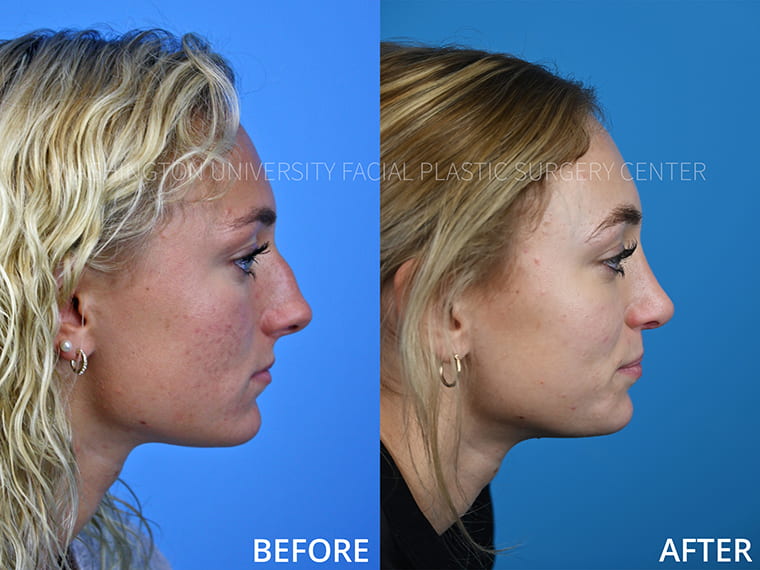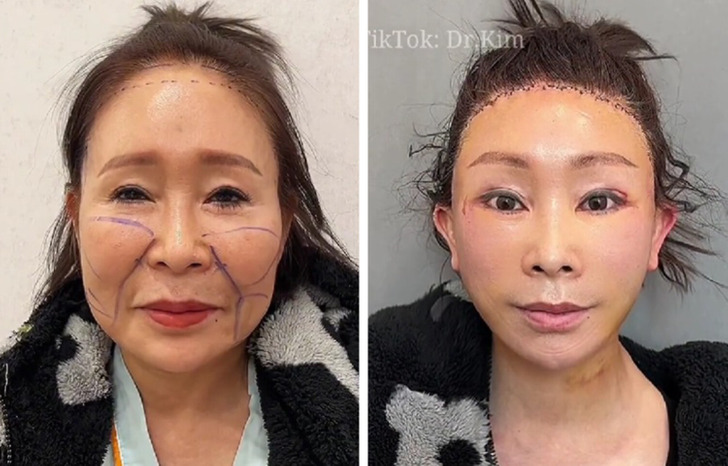Facelift Rancho Cucamonga: Turn Back the Clock with Advanced Anti-Aging Solutions
Facelift Rancho Cucamonga: Turn Back the Clock with Advanced Anti-Aging Solutions
Blog Article
The Influence of Self-Image on Decision-Making: Reasons That Numerous Individuals Pursue Cosmetic Surgical Treatment for Physical Makeover
The interaction in between self-image and decision-making is a complicated phenomenon, especially apparent in the enhancing trend of individuals selecting cosmetic surgery as a way of physical change. Motivated by a need to satisfy individual suitables and societal expectations, several people grapple with problems of self-worth that can substantially influence their options. As exterior pressures from social networks and cultural standards increase sensations of inadequacy, a vital inquiry develops: what are the underlying emotional factors that drive this quest of transformed looks, and what effects do these decisions hold for individuality and well-being?
Understanding Self-Image
Self-image describes the mental image and perception a private holds about themselves, including facets such as physical appearance, individuality attributes, and overall self-worth - mommy makeover rancho cucamonga. This interior representation significantly influences exactly how individuals interact with the world and can be a driving force behind different life choices, including the decision to go through cosmetic surgical treatment
A favorable self-image frequently associates with higher self-esteem and a feeling of self-confidence, promoting an aggressive method to life. Conversely, an unfavorable self-image might result in sensations of inadequacy and dissatisfaction, motivating people to look for outside remedies to viewed flaws. This mission for improvement can materialize in the desire for physical improvement through cosmetic procedures.
Moreover, cultural influences and social requirements play a critical role in forming self-image. The prevalent nature of media and peer contrasts can magnify feelings of insecurity, motivating people to modify their look in quest of approval or approval. Understanding these characteristics is necessary in comprehending the motivations behind cosmetic surgical treatment. Inevitably, self-image is an intricate construct that links with emotional well-being, societal assumptions, and personal goals, making it a crucial aspect in the decision-making process concerning aesthetic enhancements.
Psychological Variables at Play
Numerous mental factors influence a person's decision to seek plastic surgery, usually rooted in much deeper psychological and cognitive processes. One substantial factor is low self-confidence, which might emerge from unfavorable self-perceptions or frustration with one's look. People with reduced self-regard might think that modifying their physical features will improve their general value and acceptance in social contexts.
In addition, the idea of body dysmorphic disorder (BDD) plays a crucial duty. Individuals struggling with BDD experience a compulsive concentrate on viewed problems in their appearance, leading them to look for surgical treatment as a service. This uncontrollable desire for change can considerably misshape their self-image, driving them to go after treatments regardless of the possibility for damaging outcomes.

Societal Stress and Expectations
A considerable impact on people' decisions to go through plastic surgery stems from social pressures and expectations that suffuse modern culture. In an era dominated by social networks and continuous aesthetic direct exposure, idealized criteria of charm are frequently showcased, creating a prevalent environment where physical browse around this web-site look is intensely looked at. Such standards typically determine what is considered attractive, leading people to feel obliged to satisfy these suitables.
Furthermore, the normalization of cosmetic enhancements in pop culture better exacerbates these pressures - mommy makeover rancho cucamonga. Influencers and celebs honestly reviewing their surgeries can produce a perception that such modifications are not only appropriate but desirable. This sensation can engender sensations of insufficiency in people that might feel their all-natural appearance does not line up with societal benchmarks
Additionally, the influence of peer groups can not be overlooked. People may encounter direct or indirect stress from friends or household, resulting in a communal validation of cosmetic surgical treatment as an appropriate means to attain an idealized self-image. Consequently, these social expectations can considerably influence personal decision-making procedures, often eclipsing inherent motivations for self-improvement and cultivating a society where physical change is sought as a remedy for perceived imperfections.

Instance Researches and Personal Stories
Lots of people have actually shared their personal journeys concerning plastic surgery, revealing visit this website a complicated interplay in between self-perception and societal impacts. As an example, a 34-year-old female described how years of feeling inadequate due to her nose led her to look for rhinoplasty. She reported that after the procedure, her confidence rose, allowing her to engage even more openly in social situations and progress her occupation. Yet, she acknowledged that her choice was greatly affected by media representations of appeal.
Likewise, a male person in his late twenties recounted his fight with body dysmorphic condition, which triggered him to seek liposuction. His experience highlighted not only a desire for physical transformation yet likewise an ambition for approval among peers. Post-surgery, he revealed a renewed sense of self-respect, albeit with the awareness that internal recognition need to precede exterior changes.
These study emphasize a wider pattern: people often watch plastic surgery as a pathway to enhanced self-image. Nonetheless, the stories additionally reveal a vital viewpoint on the stress and assumptions that shape these decisions, suggesting that individual tales are deeply linked with societal standards and values.
Alternatives to Cosmetic Surgical Procedure

Skin care therapies, consisting of chemical peels and microdermabrasion, can improve skin appearance and tone, attending to problems like acne scars or their website uneven coloring. In addition, laser therapy is an effective technique for targeting specific skin issues, such as sunlight damages or vascular lesions, advertising a more youthful look.
For those seeking body transformation, non-invasive fat reduction methods like CoolSculpting can help get rid of persistent fat deposits without surgical treatment. Health and fitness programs and dietary counseling are likewise vital tools for people intending to attain a healthier body picture. Eventually, these options can offer substantial results while straightening with personal comfort levels and choices, cultivating a favorable self-image without the permanence of plastic surgery.
Final Thought
People often seek physical transformation in an effort to boost self-esteem and line up with perceived standards of beauty. By discovering choices and cultivating a much healthier self-image, individuals may find more lasting paths to self-acceptance and wellness.
The interplay between self-image and decision-making is a complex phenomenon, especially apparent in the increasing fad of people choosing for cosmetic surgery as a means of physical transformation.Countless emotional elements influence a person's decision to seek cosmetic surgical procedure, commonly rooted in deeper emotional and cognitive processes.A significant impact on individuals' choices to go through cosmetic surgery stems from social pressures and assumptions that suffuse modern society. Individuals might run into indirect or direct stress from close friends or family members, leading to a common validation of cosmetic surgical procedure as an acceptable means to attain an idyllic self-image.Many people have shared their individual journeys concerning cosmetic surgery, disclosing a complicated interaction in between self-perception and societal impacts.
Report this page